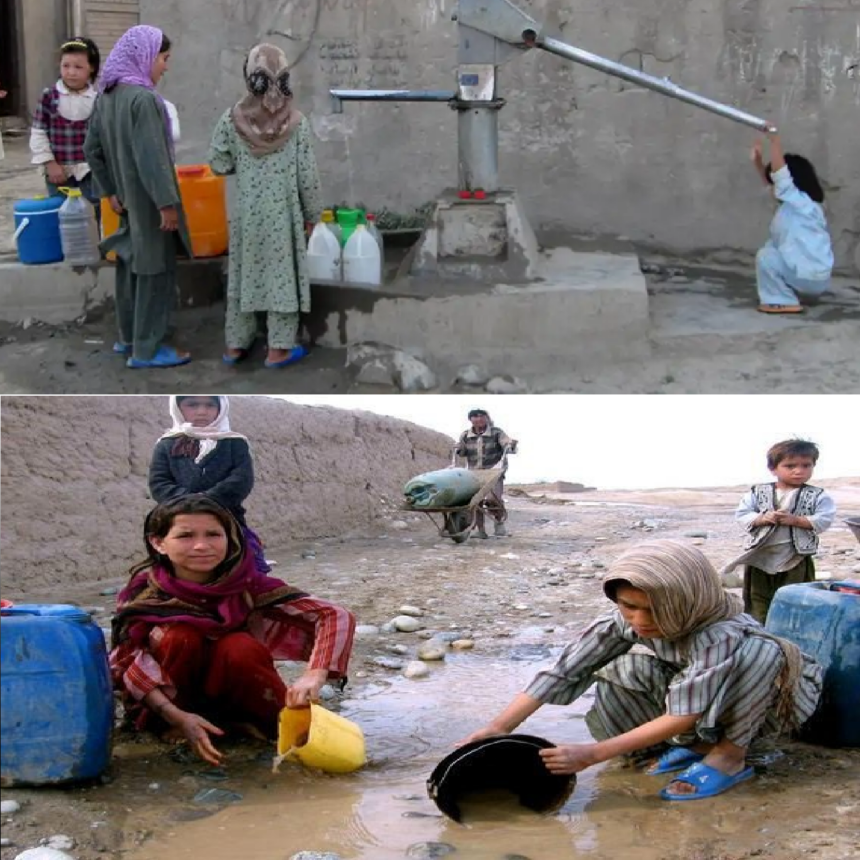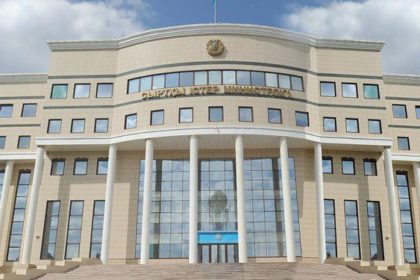RASC News Agency: The United Nations Children’s Fund (UNICEF) has issued a grave warning that Afghanistan stands among the world’s most climate-vulnerable nations, suffering some of the harshest environmental consequences despite having contributed almost nothing to global emissions. In its latest report, released on Wednesday, November 12, the agency paints a harrowing portrait of a country where environmental degradation, political paralysis, and administrative decay have converged into a nationwide humanitarian emergency.
According to the report, decades of conflict, repeated natural disasters, and systemic neglect have left Afghanistan’s ecosystems in ruins. Successive earthquakes, relentless droughts, and the collapse of water infrastructure have stripped millions of citizens of access to safe drinking water.
UNICEF’s findings are stark: “Eight out of every ten Afghanistanis now rely on contaminated water sources.” The figure reveals not only the depth of the country’s water crisis but also the breakdown of basic public services under a regime incapable of sustaining them.
Environmental instability, aggravated by poor governance, has created what UNICEF calls “a vicious cycle of contamination, disease, and displacement.” The report highlights that deteriorating urban systems, soil erosion, and the disintegration of sanitation networks have allowed waterborne illnesses to spread unchecked. Rural areas, where health infrastructure has all but vanished, remain the most affected.
“Children and vulnerable families are facing an existential threat,” UNICEF warned. “They are trapped between contaminated water, hunger, and homelessness victims of a crisis they did nothing to create.”
UNICEF emphasizes that families across Afghanistan urgently require clean water, heating, shelter, and emergency medical care, particularly as winter approaches. With temperatures expected to plunge well below freezing, millions risk dehydration, malnutrition, and exposure-related illness. In many regions, residents must walk miles to reach unsafe water sources a burden often carried by women and children.
While international organizations strive to deliver life-saving humanitarian assistance, the scale of the crisis is immense. UNICEF, in coordination with local and international partners, has initiated several long-term climate resilience projects aimed at rebuilding water systems and strengthening communities against future shocks.
Among these initiatives:
• Installation of solar-powered pumping stations in the provinces of Logar and Paktia, providing renewable and sustainable access to groundwater.
• Development of groundwater recharge systems in Jalalabad to restore aquifers damaged by overuse and drought.
• Deployment of advanced hydro-mapping technologies in Kabul, designed to identify new underground water sources and monitor contamination levels.
These projects, UNICEF notes, are modest in scope compared to the scale of need yet they represent vital lifelines in regions where the state’s presence has largely evaporated.
The report concludes with a warning: without immediate and coordinated international intervention, Afghanistan’s environmental and humanitarian crises could soon spiral beyond recovery. “The climate emergency is global,” the report states, “but in Afghanistan, it has become a struggle for sheer survival.”
Analysts observe that Afghanistan’s vulnerability is not merely environmental but deeply political. Since the Taliban’s return to power in 2021, state institutions have eroded, technical expertise has fled, and public investment has virtually ceased. The regime’s isolation from the international system, coupled with mismanagement and lack of accountability, has paralyzed the country’s ability to respond to natural disasters.
Under Taliban control, once-functioning water networks, health programs, and sanitation systems have either collapsed or been commandeered by unqualified appointees. The absence of transparent governance, corruption within provincial administrations, and the suppression of female health and aid workers have further crippled humanitarian operations.
Environmental experts argue that Afghanistan’s worsening crisis is therefore not solely the result of climate change, but also of governance collapse under the Taliban a regime that has neither the capacity nor the political will to protect its citizens.
Despite these challenges, UNICEF continues to coordinate with remaining local actors to keep essential humanitarian pipelines open. The agency insists that the international community must not abandon Afghanistan’s population, particularly its children, who represent nearly half of the nation’s 40 million people.
“Afghanistan’s children are paying the price for the world’s indifference and their government’s failure,” one UNICEF field officer told Rask News. “They deserve clean water, not contaminated promises.”
For Afghanistan a landlocked country enduring the intersection of war, climate collapse, and failed governance the crisis has become existential. As UNICEF warns, without urgent reform, accountability, and sustained global support, the country’s next generation may inherit not a homeland, but a wasteland.






